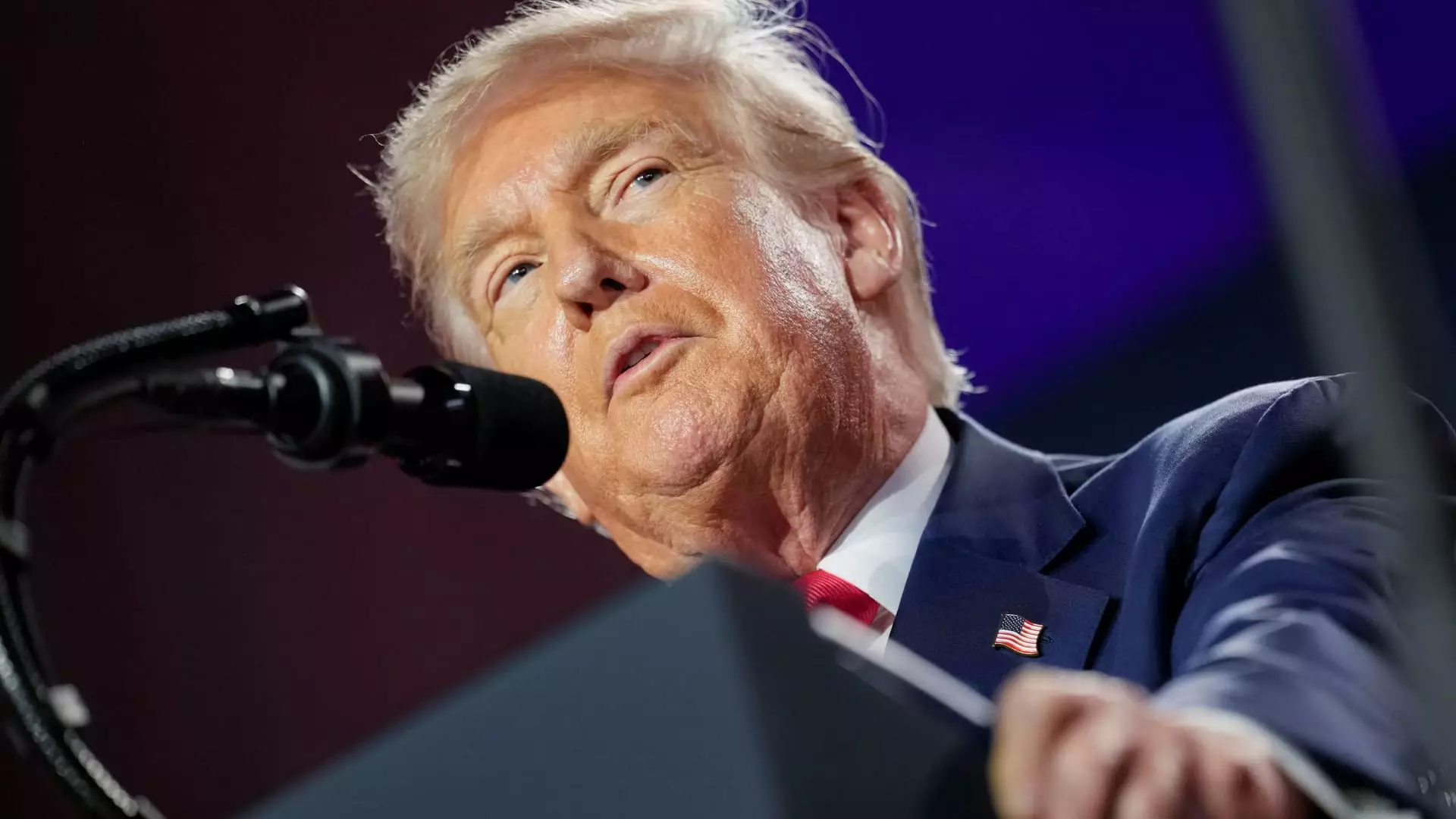The recent visit by President Donald Trump to the Federal Reserve headquarters underscores a troubling trend: the erosion of Central Bank independence under political pressure. Traditionally, the Fed has been cloaked in a degree of insulation, shielding monetary policy from transient political whims. However, Trump’s unprecedented interference, driven by personal ambition and partisan confrontations, threatens to destabilize this delicate balance. By publicly criticizing the Fed Chairman and demanding rate cuts, Trump not only undermines institutional stability but also endangers the integrity of monetary policy as a tool for long-term economic health.
This spectacle reveals a misguided belief held by some in the political sphere—that monetary policy can or should be manipulated for short-term political gain. The notion that a president can or should influence rate decisions based on personal grievances or populist rhetoric is fundamentally flawed. Such interference invites a cycle of volatility, diminishing the credibility of the Fed and risking inflationary spirals or financial crises. Furthermore, it undermines public trust in an institution tasked with maintaining economic stability independent of political influence.
The Conflating of Infrastructure Spending with Broader Economic Control
Trump’s focus on the multimillion-dollar renovations of the Fed facilities provides a superficial distraction from more significant issues of monetary governance. His critique of the expenses—despite the apparent necessity of maintaining historic buildings—serves as an attempt to frame the Fed’s operations as wasteful and irresponsible. This narrative conveniently diverts attention away from complex macroeconomic realities, such as inflation, employment, and global economic shifts.
This blurring of fiscal responsibilities fosters a dangerous precedent where infrastructural costs are politicized, and financial decisions are viewed through a lens of superficial outrage rather than strategic planning. The president’s unrestrained rhetoric devalues the importance of independent oversight, risking a future where government agencies are subjected to constant political scrutiny, thereby impairing their functioning and expertise.
Questioning the Legitimacy of Central Bank Autonomy
Most concerning is the persistent assumption that the President possesses the authority—or should possess the authority—to dismiss or directly influence the Fed Chairman. While recent legal rulings affirm the Fed’s independence, Trump’s threats and public pressure threaten this legal safeguard. This not only jeopardizes the stability of monetary policy but also sets a dangerous precedent: that political figures can override institutional independence based on personal disagreements.
An independent central bank is crucial for insulating monetary policy from the fluctuations of electoral politics. If the President’s influence becomes the norm, it could lead to a politicized economic environment in which short-term electoral gains dictate interest rates, risking inflation, recession, or financial turmoil. Such interference erodes the checks and balances intended to protect the economy from populist whims and political capture.
The Broader Implications for Democratic Governance
This ongoing saga reflects a fundamental misjudgment about the role of leadership and checks within American democracy. The insistence that the President can—and should—control the Fed reveals a fundamental misunderstanding of the importance of institutional independence. It also underscores a broader trend of undermining expert authority, favoring populist appeals over evidence-based policymaking.
By conflating infrastructure spending, which is necessary but often scrutinized, with direct interference in monetary policy, the administration diminishes the nuanced expertise behind central banking. This attitude weakens the pillars of democratic governance—where unelected officials are entrusted to maintain economic stability amidst political challenges—potentially leading us toward an era where economic policy is a battleground for partisan conflict rather than a pursuit of collective well-being.
In embracing this confrontational stance, the current administration risks jeopardizing the very stability necessary for sustained growth. It reveals a shortsighted belief that political dominance over independent institutions is a pathway to control—an illusion that can ultimately ignite economic volatility and weaken America’s global economic standing.

Leave a Reply